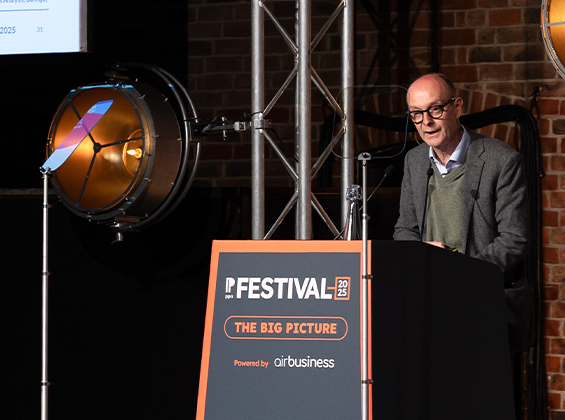
NEW ENDERS REPORT – Consumers, creators, and brands: Rewriting the media playbook
Publishers should focus on trust, usefulness and community and avoid trap of chasing consumer behaviours, says new Enders report
Industry News
Industry News
Winners of: Specialist Interest Magazine Brand of the Year
For the farming industry, 2020 was always going to be a big year. After years of Brexit wrangling, the United Kingdom finally made its official exit from the European Union on January 31, firing the starting gun on the agriculture sector’s six-year transition to Westminster after decades of being ruled by Brussels.
Less than two months later, however, this uncertain picture was further clouded by Prime Minister Boris Johnson’s announcement to place the country in lockdown. The concept of working from home might not have been so unfamiliar to farmers, but they immediately found themselves facing the difficult pressure of maintaining production while coping with various operational restrictions and supply chain challenges.
Farmers Weekly, which has served the farming community for more than 85 years, found itself in an equally tough situation. The title had only been acquired by the Mark Allen Group in February and suddenly had to adjust, like other media owners, to working within the straight jacket of a global pandemic. This meant making sure the team was equipped to work from home, co-ordinating the continued production and distribution of a weekly magazine as well as managing the brand’s output in digital and live events.
Daniel Smith, now the brand’s Publishing Director, says the importance of close working and constant, open communication was immediately apparent. “At the time, as Sales Director, I felt almost a duty to be more in touch with the team. For the team, likewise, there was a sense of wanting to be in touch with one another – probably more so than when we were in the office and you take it for granted that everyone is around.”
Frequent Town Hall meetings provided a platform to update everyone on operational matters and to share group-level communications. At the same time, staff were given the flexibility, space and support they needed as individuals, with regular contact from the senior team to check on their well-being.
Outside of the team, Daniel says concerns were also directed towards commercial partners. Many, he says, are wholly reliant on buying and selling machinery, with much of their business conducted face-to-face at auctions. The advent of social distancing resulted in them taking a significant hit overnight, the effects of which would inevitably be also felt by Farmers Weekly.
“Our customers had the same problems, if not even more acute than we had,” explains Daniel. “We made the decision, very proactively at that stage, to be very empathetic. We said: ‘We’re here to support you. What can we do to make this difficult period any easier?’
This manifested itself through the introduction of flexible commercial arrangements for loyal advertisers, with a view to sustaining relationships for the long term and, hopefully, reaping the rewards on the other side of the pandemic.
Further commercial challenges reared their heads in relation to live events, which were being cancelled in domino fashion as the pandemic unfolded. This included the brand’s own events, such as the Farmers Weekly Awards, as well as major partner exhibitions, such as Cereals.
Not only did the cancellation of these events mean lost commercial opportunities, it also had knock-on consequences for the editorial team. Andrew Meredith, who took over as Editor of the title from Karl Schneider in December 2020, explains: “Those events being cancelled meant one of our major sources of news just disappeared. Some of it moved online, but meeting people is the bread of butter of where we gather our stories. As well as the official event coverage, losing access to events and to livestock markets and farm visits means we lost the features we would write at those events and also the stories you gather just from talking to farmers on the fringes.”
Andrew says, ultimately, COVID-19 had placed Farmers Weekly at a fork in the road: should it “hunker down” into its existing core offerings or, in acknowledgement of the digital space opening up, should it put effort and momentum into online content that would sustain or, ideally, build the audience relationship?
The answer might seem obvious in hindsight, but at the time important questions remained over the digital appetite of an audience not typically characterised as digital natives. Indeed, the average age of a farming decision maker is around 60, and even the most technically competent are dependent on rural broadband, which, while improving, remains relatively poor.
Despite their apprehensions, the team made the decision to lean into the opportunity – to innovate and to be a visible champion for the UK farming community at such a difficult time. This led to the launch of a series of initiatives.
It kickstarted #FeedTheNation, a sponsor-supported campaign that raised awareness of the hard-working farming community’s important role during the pandemic and also encouraged the public to show their support by buying from farm shops. The features and news content related to the campaign attracted 74,000 individual page views, while posts reached almost half a million users across social media.
This was followed later in the year with the launch of The Farmers Army, which acknowledged the mismatch between the increased demand for food and the shortages in the labour market. It aimed to tackle the problem by providing a platform for people – even those on furlough – to access seasonal work, looking to address shortfall of 80,000 workers required to deliver the 2020 harvest.
In April, the Farmers Weekly podcast added another strand to the brand’s content offering and another point of contact for its isolated audience. Andrew explains: “Farmers are quite lonely at the best of times but that was exacerbated by COVID. The podcast was a friendly voice in their ear, which, for some, was something they really valued.”
The title’s editorial approach also evolved at this time, adding elements of positivity through opinion pieces and a degree of irreverence through columnist contributions and quizzes. This served to provide a counterpoint to the consistent stream of negative news, but it was also done with the issue of rural isolation in mind, helping to cement community together beyond a shared interest in actionable, business-driven content.
Events were quickly transitioned to digital, with the Farmers Weekly Awards being extended into a five-night production that was opened by Secretary of State George Eustice and welcomed special guests including Lifetime Achievement Award winner Prince Charles. The many members of the audience who simply wouldn’t have attended a physical event for reasons of geography or time were now given a way to participate within a few hours.
“What we learnt, actually, is that we’d underestimated them a little bit,” says Andrew. “We were very pleasantly surprised with the attendance at our digital events, which exceeded expectations early on and that was sustained through the pandemic.”
Looking inward, the learnings also extended the creative potential that exists within individuals in the team, and the power of working together to bring new ideas to fruition. This was encapsulated in The Transition Project, a collaboration between sales and editorial to create a programme of content focused on sustainability in a way that would be valued by readers. It grew into a webinar, quarterly supplement, event and podcast.
“Perhaps under normal circumstances we would have been a bit slower and more cumbersome to deliver some of those things, but it’s made us a bit more agile, a bit more forthcoming in the calculated risk of saying ‘let’s do it’. If works, fantastic, we’ve got a new proposition; if it doesn’t, then we’ve learned from that equally,” says Daniel.
As the pandemic continues to ease and face-to-face events return, the shift experienced by Farmers Weekly means that digital is now ingrained in the team’s thinking. “It moved us from a traditional print and website publisher to being a source of information, tools, insight and news in a way that we haven’t been before. It’s now about how do we take that forward more strategically than tactically, as we’ve done in the last 12 months.”
For the farming sector, big challenges still lie ahead, and Andrew says it is now better placed to provide content that its audience want in the way they want it, truly fulfilling its responsibility as a trusted, specialist media brand.
He concludes: “Their job is their life. It’s there on their doorstep, and that can be the hardest thing sometimes when things are going badly, but the best thing when the sun’s shining and you’ve had a success. They are raising their families in this environment. It’s not just about commercial aspects of farming, it’s a culture.”

Publishers should focus on trust, usefulness and community and avoid trap of chasing consumer behaviours, says new Enders report

The PLS Conference 2025 brings together leading voices in publishing, who will be exhibiting and hosting an expert-led session.
Chancery House, 53-64 Chancery Lane, London WC2A 1QS




If you have a member login, enter your details below. Please note, that your login is for PPA.co.uk only and not for our event sites.
If you are a member but don’t have an account yet, you can setup your account here.
Any problems, please contact membership@ppa.co.uk.